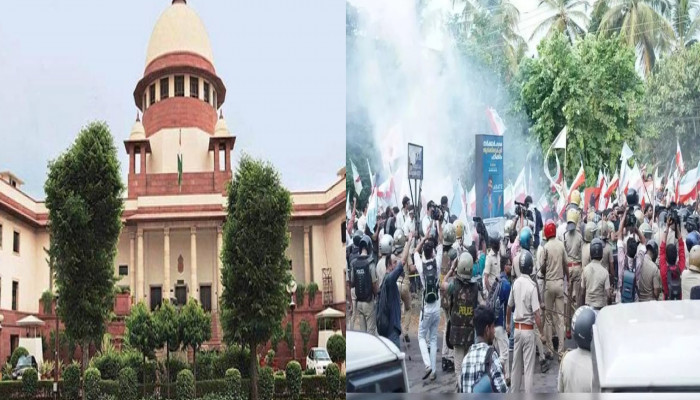Supreme Court to hear petitions against Waqf (Amendment) Act on April 16
- In Reports
- 11:31 AM, Apr 10, 2025
- Myind Staff
On April 16, a three-judge Supreme Court bench is scheduled to consider several petitions contesting the Waqf (Amendment) Act, 2025, according to Bar and Bench. The action follows the Waqf (Amendment) Bill becoming law after it was approved by both houses of parliament and signed into law by President Droupadi Murmu.
The Bench, led by Chief Justice of India (CJI) Sanjiv Khanna and including Justices PV Sanjay Kumar and KV Viswanathan, will hear the case. There are a total of 10 petitions challenging the amended Act. One of the main petitioners is Asaduddin Owaisi, an MP from the All India Majlis-e-Ittehadul Muslimeen (AIMIM), who has vehemently opposed the changes. The Waqf (Amendment) Act, 2025 brings two major changes: First, it removes the idea of ‘waqf by user,’ meaning land can no longer be considered waqf just because it has been used that way for a long time—it must be officially declared or donated as waqf to be recognised. Second, it sets conditions for donating land to waqf, requiring that the donor must have been a practicing Muslim for at least five years. The Act also clearly states that women cannot be denied their inheritance rights in waqf property.
The 1995 Act did not clearly address the issue of government land being declared as waqf. The new Act clarifies that if government land was mistakenly listed as waqf, it will no longer be treated as waqf. In case of disputes, the District Collector, rather than the Waqf Board, will have the final say, and the matter will be resolved under state revenue laws. The power to determine waqf status has now been shifted from the waqf board to state-appointed officials, who will now be responsible for declaring and managing waqf lands. Previously, waqf land surveys were carried out by survey commissioners and additional commissioners. Under the new system, the District Collector will now oversee these surveys to ensure that waqf land records match the state revenue records. The new Act brings several changes to the Waqf system. Earlier, all members of the Central Waqf Council had to be Muslim, including two women, but now it includes two non-Muslim members as well.
While Muslim scholars, representatives, and waqf board chairpersons must still be Muslim, the Act allows MPs, former judges, and other eminent persons to be non-Muslim. It still ensures that at least two Muslim women are part of the council. For state waqf boards, the previous system of electing Muslim MPs, MLAs, or Bar Council members has been replaced by a nomination process by the state government. The new structure includes two non-Muslims and ensures representation from Shia, Sunni, Backward-class Muslims, Bohra, and Agakhani communities, with at least two Muslim women members. The structure of Waqf Tribunals has also changed—earlier it required a Muslim law expert, but now it will be headed by a District Court judge and include a joint secretary from the state government instead.







Comments